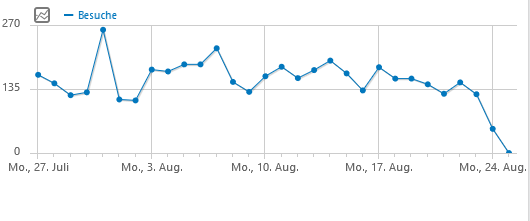Consent-free tracking with Matomo as an alternative to Google Analytics
With 80% market share, Google Analytics is the undisputed market leader among web analysis services. But it has its downsides: the data quality is in need of improvement, is commercial and, above all, legally not harmless. As an open source web analytics platform, Matomo, formerly Piwik, is a real alternative to Google Analytics and, with the right use, website operators can even dispense with the use of cookie banners.
One of Matomo's guiding principles is “respecting privacy” - even if this initially seems to contradict a web analytics platform that tracks user activities on websites. But Matomo can be configured in such a way that the strictest data protection guidelines are observed. This is made possible by expanded data protection functions: For example, the software has an opt-out mechanism with which users can deactivate web analysis tracking. It is also possible to anonymize IP addresses and implement other data anonymization techniques. Expiration dates for tracking cookies can also be set. Further information is also available at https://matomo.org
 There are currently two Matomo tracking variants: JavaScript fingerprinting or server logfiles. Both variants have their advantages and disadvantages. Variant one is comparatively easy to set up and the recognition of returning visitors works much better. Advanced use cases (use of more precise metrics, recording of heat maps, form analyzes, etc.) and the recording of outgoing links are also possible with this variant. On the other hand, variant two scores with the fact that JavaScript does not have to be integrated into the context of the page. In addition, the log file also contains visitor information if advertising and tracking blockers are used, and spambots can be more easily identified and filtered. The technical functionality of both variants as well as the configuration of the log file analysis are described here well and in detail. A clear recommendation for variant two is also given here:
There are currently two Matomo tracking variants: JavaScript fingerprinting or server logfiles. Both variants have their advantages and disadvantages. Variant one is comparatively easy to set up and the recognition of returning visitors works much better. Advanced use cases (use of more precise metrics, recording of heat maps, form analyzes, etc.) and the recording of outgoing links are also possible with this variant. On the other hand, variant two scores with the fact that JavaScript does not have to be integrated into the context of the page. In addition, the log file also contains visitor information if advertising and tracking blockers are used, and spambots can be more easily identified and filtered. The technical functionality of both variants as well as the configuration of the log file analysis are described here well and in detail. A clear recommendation for variant two is also given here:
Against the background that the ECJ ruling of October 2019 can also be interpreted in such a way that the visitor has to give his consent to the tracking even with the variant with JavaScript fingerprinting (without cookies), the advantage here is clearly with the log file analysis.
In terms of functionality, Matomo clearly competes with Google Analytics. In contrast to this, it can also be used without the active consent of website visitors, provided that the log file analysis is used: Small to medium-sized websites in particular can benefit from Matomo, as they - with the correct structure of their website - can dispense with the use of cookie banners. Website operators can either host Matomo themselves or with a provider in the cloud. If Matomo is operated on its own servers, compliance with data protection can be verified, as the data collected is not automatically shared with a third party.
Tag-Filter
16.11.2021 - Our aixCMS [more...]
29.07.2021 - IT security with aixzellent [more...]
03.05.2021 - Challenges with mobility data [more...]
26.02.2021 - Mobile Device Management with Relution - Device Management for schools and SME [more...]
28.01.2021 - Choosing your own cloud - GDPR-compliant and without compromises [more...]
30.11.2020 - OnlyOffice - Working without Microsoft and Google [more...]
02.11.2020 - Digital policy and state trojans [more...]
30.09.2020 - Online events – more than a room [more...]
28.08.2020 - Consent-free tracking with Matomo as an alternative to Google Analytics [more...]
22.07.2020 - Privacy Shield Judgement - Privacy vs mass surveillance [more...]


